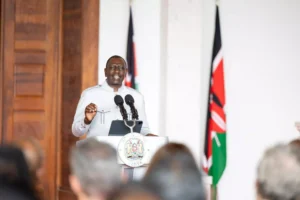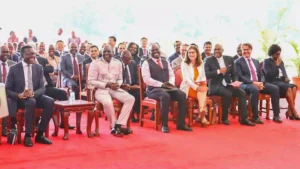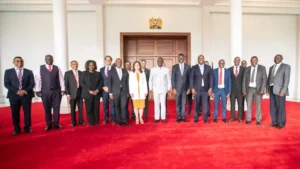Kenya government has secured KSh 27 billion to connect 280,000 households to electricity under the Last Mile Connectivity Project, said President Wiliam Ruto on Monday, May 27, 2024.
President Ruto ensured that the funds will strengthen the ambitious plan of the government of Kenya in achieving the objective of universal access to the electricity, by the year 2030.
The president presided over the contract signing ceremony on Monday, for Phase IV of the Last Mile Connectivity Project. The signed contract secures €180 million connecting 280,000 households in 32 countries.

The President especially stressed upon the ambitious vision, initially seeing it as audacious and has realised this through unwavering commitment and investment.
Reportedly, the State Head claimed that the Last Mile Connectivity Project, is a game-changer and is an essential component of the Bottom-Up Economic Transformation Agenda that has successfully closed the development gap between rural and urban areas.

President William Ruto stated that their determination has increased the national electricity access rate from 27% in 2013 to more than 75% which has connected 9.6 million Kenyan households for the power which is reliable and affordable.
As per the sources, with an additional funding from the European Union, the French Development Agency (FDA) and the European Investment Bank (EIB), the government of Kenya has promised KSh 2.5 billion for this current phase of the project.
According to the President, the project has greatly increased national productivity across a number of sectors by enabling the adoption of efficient technologies, through the expansion of electrical grid into underserved areas.

President William Ruto has said that they are firmly on course to achieve 100% connectivity by the year 2030. He then highlighted regarding a parallel connectivity program worth of KSh 22 billion in partnership with the African Development Bank (AfDB) and the Kingdom of Saudi Arabia, that aims to connect more than 270,000 customers.
Furthermore, the project has improved healthcare, education and the environment while illuminating homes and empowering communities and turning the entire nation into a thriving economic centre by bringing millions of households online. He added that the Universal access is fundamental for achieving economic inclusivity.

